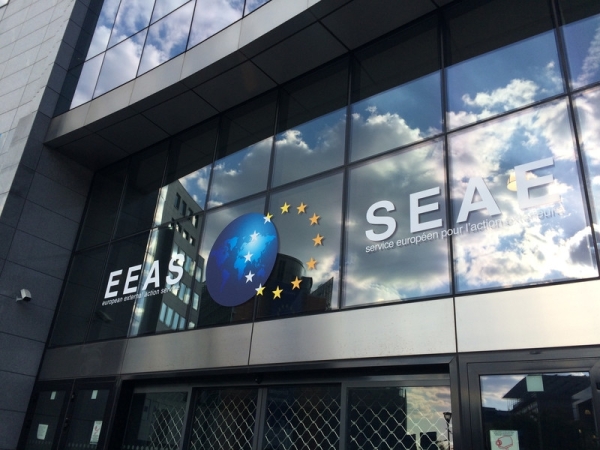EU’s diplomatic arm faces staffing challenges, say auditors
The EU’s diplomatic arm, the European External Action Service (EEAS), faces key challenges in its workflows and staffing, according to a new report from the EU’s internal auditors published on Tuesday (30 January).
The EEAS is the face of the EU around the world, and while it works "efficiently" with the different institutions, the Luxembourg-based European Court of Auditors (ECA) found that it needs to provide better support to the Union’s delegations abroad.
"Foreign policy, and the way it is implemented and coordinated, are vital for the EU, especially given recent events, in particular Russia’s invasion of Ukraine," said Marek Opiola, the lead auditor of the report.
Across its Brussels HQ and its 145 EU delegations, the EU’s diplomatic arm has over 8,100 staff and a budget of over €1bn in the year 2022 (including commission staff).
But this staff is not homogeneous: 3,357 of them are local agents [because they’re generally easier to recruit], 2,370 are officials and temporary agents, and 1,724 are contract agents — plus a policy of regular rotation.
"This really increases the importance for us of effective coordination and moving towards the ‘one EU delegation’ or unity delegation approach that is being sought," a senior auditor told EUobserver, referring to the need for staff from different backgrounds to work together as one unified group.
According to the report, more effort is needed between the EEAS and the commission to adapt staffing levels in their external delegations to current needs.
"Flexibility and a sense of unity remain a challenge [for staff] in EU delegations," the ECA auditor added.
In a survey of EU ambassadors, several highlighted the problem of understaffing, especially in their political sections, but also some workload imbalances.
Some 60 percent of respondents felt that the EEAS’s human resources were not commensurate with the level of tasks assigned to the delegations.
In the case of commission staff, the proportion is lower, but still stands at 30 percent.
The EEAS was set up in 2011 to facilitate the EU’s diplomatic relations with third countries and international organisations, but as more EU policies now have an external dimension and EU delegations take on a broader foreign policy role, some policy areas have not been met with adequate staffing levels, the report says.
In policy areas such as climate, energy, trade, cybersecurity or space, many delegations have had to rely on a small number of staff to cover these growing areas.
"The expertise was not flowing to where it was needed, but this has not been quantified," a senior EU auditor said.
"They have to find a way of being flexible with the current resources to make sure that the right staff are in the right place," the auditor concluded.
The EU auditors also warned that challenges remain in information management and reporting, citing, for example, how the sharing of sensitive and classified information is hampered by the limitations of the IT tools in place.
The EEAS has accepted all the recommendations made by the auditors, who will review the situation in three years’ time to measure progress.

